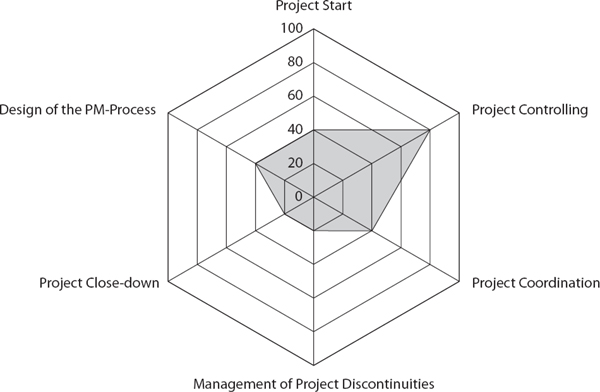For managing the projects, project portfolios and programs, companies with project orientation have particular strategies, organizational structures, and certain cultures. The management of the programs and project provides competitive improvement for the social systems. Therefore, the organizations including nations, regions, industries are becoming more project oriented. There is an interrelationship between the outcomes of the project oriented systems in the project and their maturity state. These maturities of the project or an organization can be evaluated by different maturity models. In this article, the maturity model developed by the ROLAND GAREIS Project and Programme Management ® has been discussed. Dr. Roland Gareis who is a university professor at the Vienna University of Economics and Business Administration, Austria. Project Maturity models have different dimensions which Continue reading
Project Management
Project Management Office (PMO)
Project Management Office (PMO) is continuously growing concept across the world. PMO is mainly responsible for the guidance, handling complex projects, documenting the overall progress of the projects and implementing the projects in the organization. The Project Management Office provides guidance in standardized tools, techniques and can reduce the problems caused by uncertainties in the project which also helps the project to be effective and cheaper. PMOs will also help in structuring project management into the systematic approach, like quality management, scheduling and conducting day-to-day tasks, iterations and do documenting the project. PMO can provide support to the project management process and in the selection of projects, contributing in the enhancement of maturity and to increase the performance of the Continue reading
Concept of Project Based Organizations (PBO)
In today’s turbulent market, a lot of organizations is still seeking for a strategic advantage over others and a lot of them has actually seek Project Based Organization (PBO) as a way to propel them for greater height and thus, gain a strategic advantage over other companies. However, there are still questions how they can best make use of this new organization structure approach to create a synergy between company business mission, strategy, and project as well as portfolio management Project Based Organizations refer to organizational forms that involve the creation of temporary systems for the performance of project tasks or activities. PBOs are gaining increased attention as an emerging organizational form, but there is very little knowledge on how Continue reading
Agile Project Management – Concept and Stages
What is Agile Project Management? Agile project management has been defined as short cycles of product development that deliver incremental updates of the product rapidly based on the changing needs of the customer. This methodology is the opposite of waterfall project management, which values extensive planning and pre-production. The agile approach consists of a number of stages including rapid iterative planning and development cycles allowing a project team to constantly evaluate the project and obtain immediate feedback from users or stakeholders allowing the team to learn from their experiences after each cycle. After the streamlined planning requirements, definition and solution design phase is completed to get the project underway iterations or more detailed planning requirements are created. This allows for Continue reading
Phases of Project Management Life Cycle
A project is a temporary endeavor undertaken to create a unique product or service. A project is temporary in that there is a defined start (the decision to proceed) and a defined end (the achievement of the goals and objectives). Ongoing business or maintenance operations are not projects. Energy conservation projects and process improvement efforts that result in better business processes or more efficient operations can be defined as projects. Projects usually include constraints and risks regarding cost, schedule or performance outcome. Project Management is the application of a collection of tools and techniques (such as the CPM and matrix organization) to direct the use of diverse resources toward the accomplishment of a unique, complex, one-time task within time, cost Continue reading
Project Management Basics
Project management is defined as process of initiating, planning, executing and delivery of a product with a group of a team to achieve a goal on time. In project management the main things to consider are start and end date of a project. For every project there will be a risk factor which should be taken care. Any project needs following four factors: Time, Budget, Quality and Feedback from the stakeholders. Also, project management is an important and significant contribution in delivering the business benefits through projects. It also has been seen that organizations these days are following a strategic way to achieve the goals of the project. Project management also plays a vital role in preparing a strategic plan Continue reading




